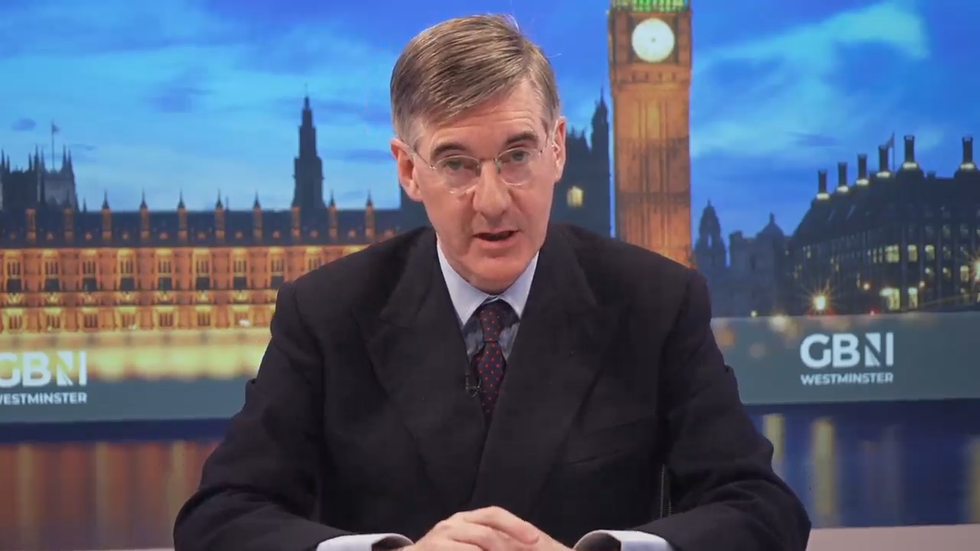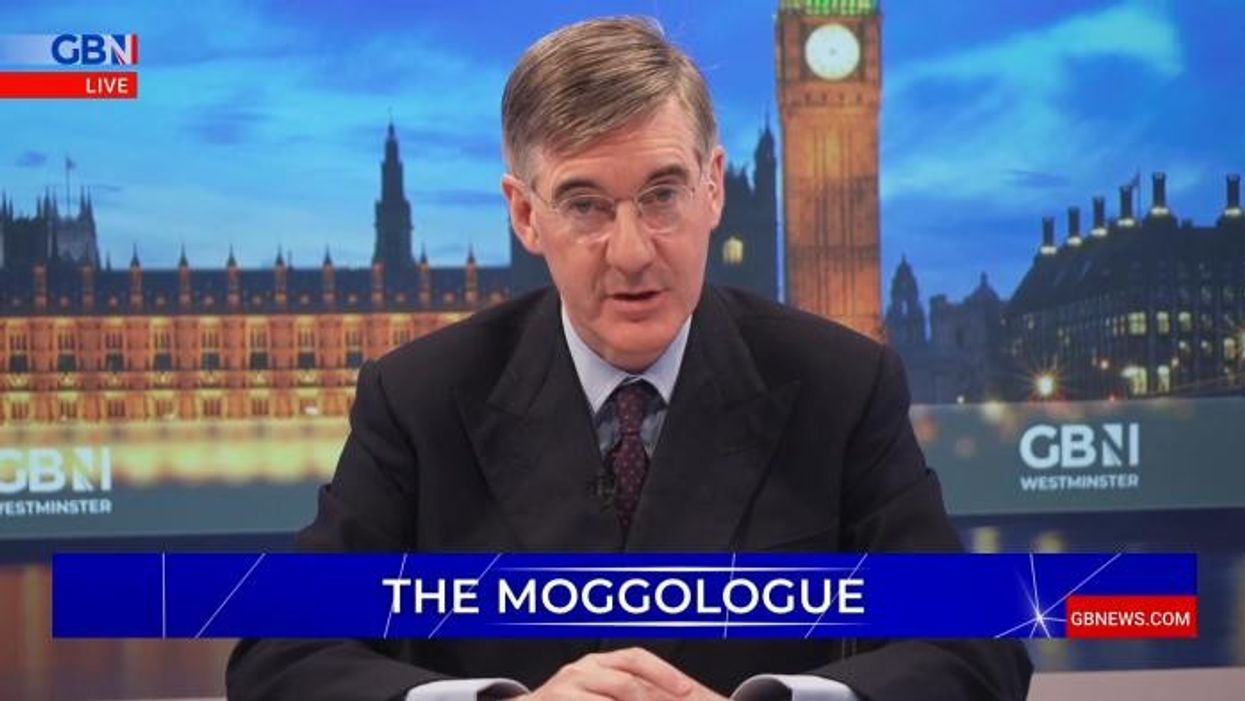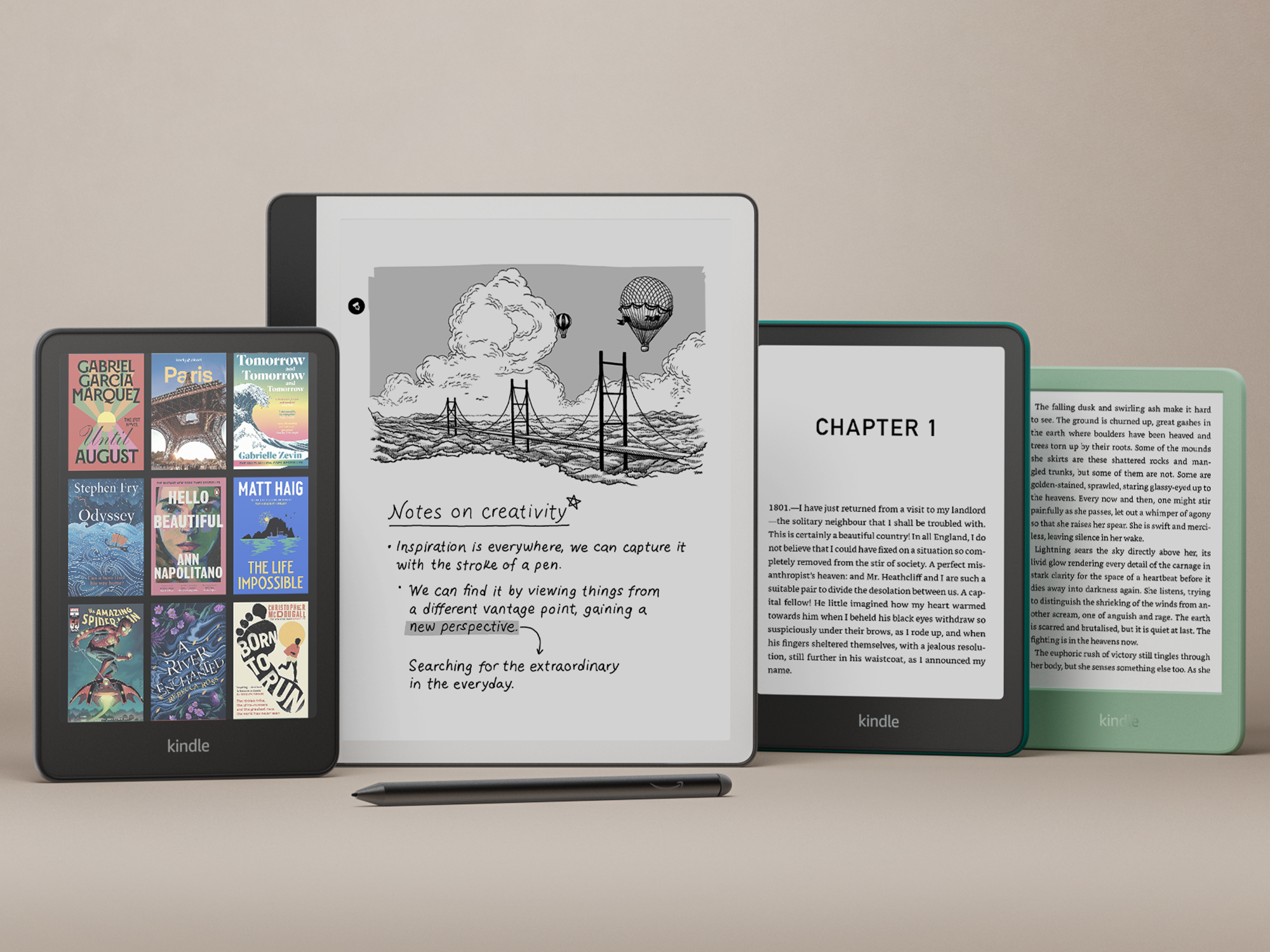We can delay the net zero fantasy and make cheap energy Britain's reality, says Sir Jacob Rees-Mogg

The world without grid decarbonisation would lead to a world in which we would provide cheap energy for British consumers
Don't Miss
Most Read
The Energy Secretary, Claire Coutinho, has courageously challenged the extreme ideology of green-ism, in a landmark speech which warned that the net zero agenda and its policies could crush British businesses if not implemented properly.
Speaking today at the Innovation Zero conference, she told technology entrepreneurs that climate policy is at a fork in the road, going on to say that the first path is one I do not want to take us down.
It is one with an ever-increasing and narrowing set of targets where the Government dictates outputs and prices, and a net zero leviathan of central planning crushes our brilliant enterprise economy.
These astute concerns complement the sensible delays made by the Prime Minister to some of the net zero deadlines, such as the 2030 new petrol and diesel car ban or the boiler tax.

Jacob Rees-Mogg calls for delay to net zero agenda
|GB News
But while the energy secretary declared the alternative direction of travel as one that still includes a vision of net zero, I would suggest an alternative vision for the direction away from eco-fanaticism.
Imagine a world where we made use of cheap gas resources, where our gas power stations remained on indefinitely. The moment we turn them on and off intermittently, which is not only inefficient but also means providers charge higher prices to consumers.
Imagine a world in which we wouldn't have to decarbonise our grid by 2035, which will cost you £105billion.
Or 2030, in the Labour Party's case, which will cost you an additional £116billion. In the past year, just over a third of our energy came from renewable resources.
But in a world in which the grid is fully decarbonised, where on Earth would the rest of our energy come from? The answer is nowhere. So we'd be needlessly facing blackouts.
The world without grid decarbonisation would lead to a world in which we would provide cheap energy for British consumers.
Imagine a world in which we wouldn't force consumers to buy electric cars, not least because there aren't enough charging points across the country, but also because they can't travel long enough distances or pull heavy enough loads. Not to mention the fact that the cheapest new one on the market is about £20,000.
British consumers would be allowed to keep more of their own money. Similarly, a world in which we didn't force people to buy heat pumps costing up to £14,000 compared to the average boiler of £2,000, but again let consumers keep more of their money.
Imagine a world in which our economy was competitive and houses warm, because electricity costs $0.17 per kilowatt hour, as it does in the United States, run the $0.44 it currently costs here.
Well, the point is, we don't need to imagine this world. It is well within our grasp. We can delay the net zero agenda, provide cheap energy for British consumers, let markets lead the way with British consumers free to make their own choices and unleash Britain's economic growth.
This doesn't have to be a fantasy. We can make this Britain's reality. The real fantasy is net zero by 2050.











